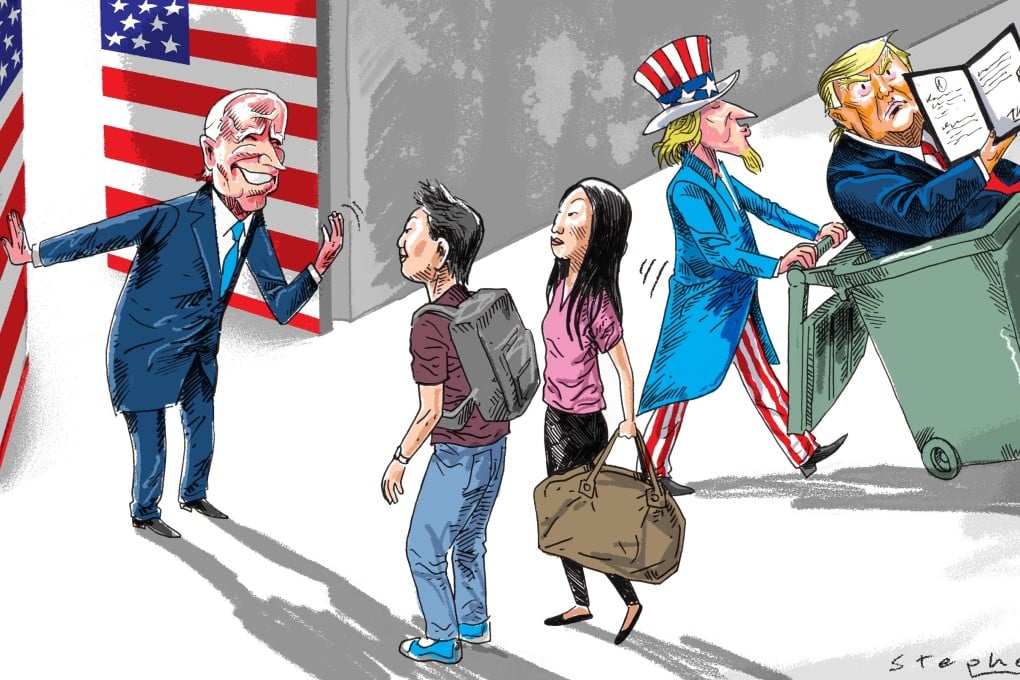Opinion | Biden should prioritise reversing Trump’s blanket ban on Chinese and other foreign students
- Trump administration policies have inflicted enormous harm on America’s universities, economy and global standing. While every government has the right to screen out any foreign students, to continue to impose sweeping bans is just nuts

Trump administration policies have damaged the openness and attractiveness of the US as a destination for the best and brightest students from around the world. In the 2019-20 academic year, 267,712 international students enrolled in the country – 11 per cent off the peak of 2015-16.
This decline wasn’t just the result of the Covid-19 pandemic. Most international students aimed to continue their studies regardless, if remotely, with one survey finding that only 4 per cent of Chinese students polled had cancelled their study-abroad plans.
This directly damages American interests. First, US industry has been strengthened for decades by the education, training and employment of generations of foreign students. Look at the ethnic make-up of Silicon Valley, one of the powerhouses of the American economy: these students are an important part of the US economy.
